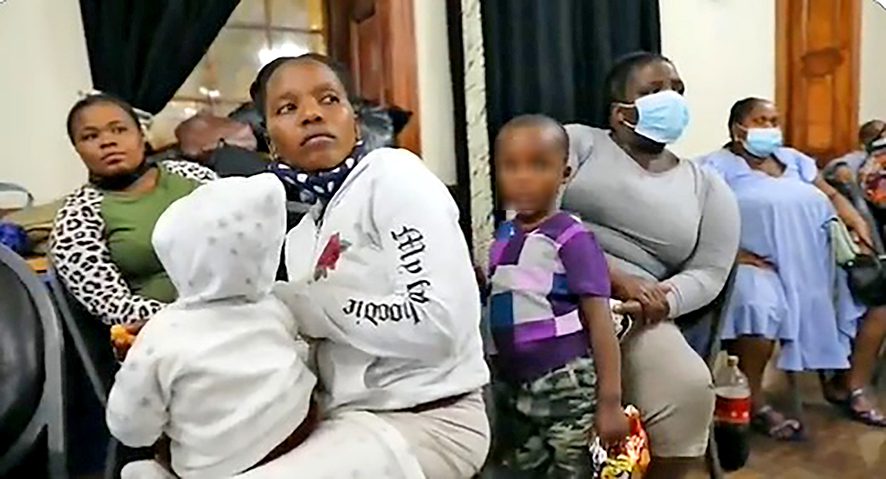Desperation and anguish rages on for Durban flood victims who are housed in shelters around the city in the aftermath of the record-breaking natural disaster that ravaged KwaZulu-Natal, claiming more than 450 lives.
Several flood victims who spoke to Sunday World painted a picture of despair, saying some flood survivors had resorted to drowning their sorrows in alcohol.
Their anger of been neglected by the government came to a head on Monday when they took their fight to the Durban City Hall, the municipal headquarters of the only metro in KZN.
A group of about 200 people held a sit-in and demanded that decent temporary accommodation be made available for flood victims while awaiting permanent housing.
The atmosphere at various shelters is tense, with occupants refusing to have any of their photos taken, accusing the media, politicians and non-profit organisations of exploiting their plight and violating their dignity.
Zinhle Ngubane, who lost her mother and two of her siblings when their house was washed away in Inanda, south of Durban, hesitates for a moment before narrating the hardships they endured in the temporary shelters.
“For more than two months we have been housed in shelters with no privacy and we have to endure cold nights because the structures are inappropriate and there are no adequate blankets.
“This has taken a heavy toll on some of the survivors because they spend whatever money they get on alcohol. People want to drown their problems,” she said.
Ngubane has a vivid recollection of the events that forced her to seek refuge in the community hall.
Their ancestral home was reduced to rubble after the angry rains, which turned a small stream into a raging river that swallowed her family home.
“My mother and two of my siblings were in the main house and I was in another house. I remember hearing loud screams and I couldn’t get out because I was also battling [the water], which had flooded the house. I was assisted by other community members [to get] out of the house, which also collapsed a few minutes after we fled,” she said of her harrowing experience.
Three days later she was told that the rest of her family members had been washed away and were discovered buried under debris on the banks of the local river.
Another flood victim, Lungile Mayaba, said fights often broke out because some adults were engaging in inappropriate behaviour, having sex in the overcrowded shelters.
“Some shelters are mixed and now unruly adults are engaging in sexual activity, especially late at night, thinking that children are sleeping. This has led to confrontation,” she said.
Mayaba said hunger and hygiene were other hardships confronting flood victims.
“We rely on food donations and sometimes it doesn’t come and we, including our children, have to sleep on an empty stomach. Hygiene is also a problem because there are no ablution facilities,” said Mayaba.
There are also accusations by survivors that the money meant to assist them has been swindled.
The accusations have been worsened by the government’s poor communication and conflicting messages driving a wedge between distressed community members and officials.
A lobby group known as Umsinsi wokuZimelela Native Movement, has also joined the fray, questioning the disbursement of flood relief money and calling for transparency.
“There’s a lot of secrecy around disaster funds.
“President Cyril Ramaphosa declared a state of national disaster and said R1-billion will be made available to assist flood victims.
“People are asking where the money is. Families are yearning to rebuild their lives and they are pleading for transparency,” said Buyani Mcineka, speaking on behalf of the lobby group.
Follow @SundayWorldZA on Twitter and @sundayworldza on Instagram, or like our Facebook Page, Sunday World, by clicking here for the latest breaking news in South Africa. To Subscribe to Sunday World, click here




